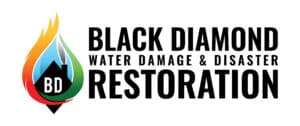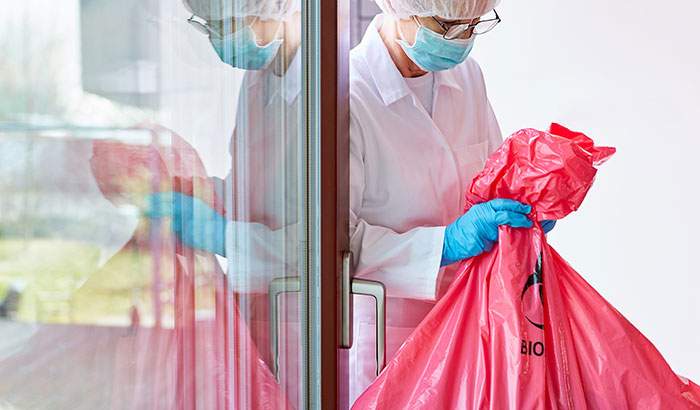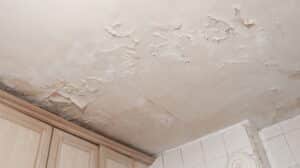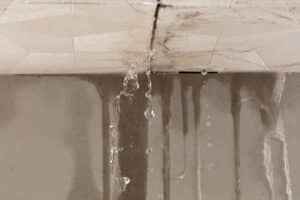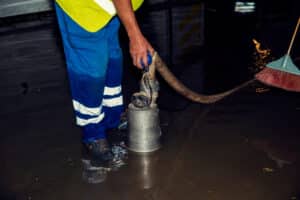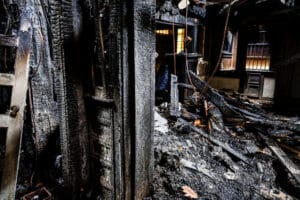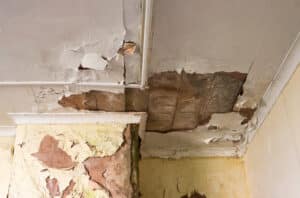Cleaning up Biohazard materials can be a tricky situation. Without the proper protective equipment and specific cleaning supplies, it can be dangerous. So, having the right equipment to keep you safe is essential, especially regarding crime scene cleanup.
But before we dive into the world of biohazard cleanup involving crime scenes, let’s take a look at what exactly qualifies as biohazard materials.
Biohazard materials are any biological material that potentially threatens the health of living organisms, including humans, animals, or the environment. These materials can be infectious, toxic, or radioactive and include:
- Microorganisms: Bacteria, viruses, fungi, and parasites that can cause disease in humans or animals.
- Blood and bodily fluids: Blood, saliva, urine, feces, vomit, semen, and other bodily fluids can contain infectious agents that may cause disease.
- Tissues and organs: Human or animal tissues and organs can carry infectious agents, toxins, or other harmful substances.
- Sharps: Needles, scalpels, and other sharp objects that can puncture the skin and transmit infectious agents.
- Chemicals: Chemicals that are hazardous to human health, such as toxins, carcinogens, and mutagens.
- Radioactive materials: Radioactive materials that can emit harmful ionizing radiation.
What is biohazard cleanup?
Biohazard cleanup is a critical process that involves removing and cleaning hazardous materials left behind after a traumatic event, such as a crime scene, suicide, homicide, or any other violent incident. These materials can include bodily fluids, blood, and other infectious materials that can cause significant harm to people who come into contact with them. Therefore, biohazard cleanup is essential for ensuring the safety and health of the public.
Biohazard cleanup is a dangerous and challenging task that should be left to professionals. In this blog, we will explore why biohazard cleanup is necessary, what it involves, and the importance of hiring professionals to handle biohazard cleanup at crime scenes.
Why Biohazard Cleanup is Necessary
Biohazard cleanup is essential for several reasons. First and foremost, it is crucial for maintaining public safety. When a traumatic event occurs, there is often the presence of hazardous materials such as blood, bodily fluids, and other infectious materials that can pose a health risk. These materials can contain harmful pathogens that can cause serious illnesses, including HIV, hepatitis, and other infectious diseases.
Biohazard cleanup is also necessary for preserving the crime scene. When a crime occurs, the scene is often contaminated with evidence that can be crucial in solving the case. However, if the scene is not cleaned up correctly, critical evidence can be lost, destroyed, or contaminated, making it impossible to solve the crime.
Finally, biohazard cleanup is necessary for emotional and psychological reasons. Traumatic events such as suicides, homicides, and accidents can be emotionally and psychologically challenging for individuals involved in the event, as well as their families and loved ones. By hiring professionals to handle the cleanup process, families and loved ones can focus on the healing process rather than dealing with the trauma of cleaning up the scene themselves.
What Biohazard Cleanup Involves
The first step in biohazard cleanup is removing visible blood or bodily fluids from the affected area. This involves using specialized equipment such as biohazard bags, disposable gloves, and other protective gear to prevent contact with hazardous materials. Once the visible materials are removed, the area is thoroughly cleaned using specialized cleaning agents designed to kill harmful pathogens.
After the area has been cleaned, it is disinfected using specialized disinfectants designed to kill harmful pathogens. The disinfectants are left to sit for a specified period, after which the area is cleaned again using specialized cleaning agents.
Finally, any contaminated materials such as carpets, flooring, and other materials are removed and disposed of properly. This is done to ensure that there is no risk of exposure to harmful pathogens that may be present in the materials.
Why Biohazard Cleanup Should Be Left to Professionals
Crime scene biohazard cleanup is a very sensitive and delicate process that requires a high level of expertise, knowledge, and skill to be performed properly. Crime scene cleaners are trained to handle hazardous materials, bloodborne pathogens, and other biohazards that may be present at a crime scene. They are also trained to follow strict safety protocols and guidelines to ensure they do not risk themselves or others while performing the cleanup.

Here are 18 reasons why crime scene biohazard cleanup should be left to professionals:
- Professional Training: Crime scene biohazard cleanup professionals receive specialized training and certification that enables them to safely and efficiently clean up crime scenes. They have an in-depth understanding of how to handle biohazardous materials, including blood and bodily fluids, and are familiar with the proper procedures for disinfection and disposal.
- Hazardous Materials: Crime scenes often contain hazardous materials that can pose serious health risks to untrained individuals. These materials may include bloodborne pathogens, hazardous chemicals, and other biohazardous materials. Crime scene cleanup professionals have the necessary equipment and training to handle and dispose of these materials safely, minimizing the risk of exposure.
- Personal Protective Equipment: Crime scene cleanup professionals use personal protective equipment (PPE) to protect themselves from exposure to hazardous materials. This includes gloves, masks, goggles, and specialized suits designed to prevent the spread of infectious diseases and other contaminants.
- Bloodborne Pathogens: Bloodborne pathogens are viruses and bacteria that can be transmitted through blood and other bodily fluids. Crime scene cleanup professionals are trained to identify and contain bloodborne pathogens, and they use specialized cleaning agents and disinfectants to ensure that the area is properly sanitized.
- Compliance with Regulations: Crime scene cleanup professionals are required to comply with strict regulations and guidelines for handling and disposing of hazardous materials. They thoroughly understand local, state, and federal regulations, ensuring that the cleanup process is completed in compliance with all applicable laws.
- Emotional Support: Crime scene cleanup professionals understand the emotional toll crime scenes can take on individuals and families. They are trained to provide compassionate and supportive services to help clients cope with the aftermath of the crime.
- Trauma-Informed Care: Crime scene cleanup professionals are trained in trauma-informed care, which means that they understand how trauma can affect individuals and are equipped to provide services that are sensitive to the needs of those who have experienced trauma.
- Psychological Support: In addition to emotional support, crime scene cleanup professionals can provide psychological support to clients. They can connect clients with mental health professionals and other resources to help them cope with the psychological impact of the crime.
- Insurance Coverage: Many crime scene cleanup companies are covered by insurance, which can help mitigate the cleanup process’s financial burden. This insurance coverage can provide clients peace of mind, knowing they are protected in case of accidents or injuries.
- Discreet and Confidential: Crime scene cleanup professionals understand the need for discretion and confidentiality. They work quietly and efficiently to clean up the scene, minimizing disruption to the property and respecting the privacy of the individuals involved.
- Efficiency: Crime scene cleanup professionals have the necessary equipment and training to quickly and efficiently clean up crime scenes. They can complete the job promptly, reducing the time that property owners and other individuals are exposed to hazardous materials.
- Minimizing Secondary Contamination: Crime scene cleanup professionals understand the importance of minimizing the risk of secondary contamination. They use specialized cleaning agents and disinfectants to ensure that all surfaces are properly sanitized, preventing the spread of bacteria and other contaminants.
- Property Restoration: In addition to cleaning up the scene, crime scene cleanup professionals can provide property restoration services. This may include repairing damage to the property, such as replacing carpeting, flooring, and drywall.
- Proper Disposal: Crime scene cleanup professionals thoroughly understand how to dispose of biohazardous materials properly. They follow strict protocols to ensure that all materials are disposed of safely and comply with all applicable regulations.
- Legal Liability: Property owners and landlords may be held legally liable for the cleanup of a crime scene on their property. By hiring a professional crime scene cleanup crew, property owners can minimize their legal liability and ensure that the cleanup process is handled in compliance with all relevant regulations.
- Experience and Expertise: Crime scene cleanup professionals have years of experience and expertise in handling a wide variety of crime scenes. They can assess the situation and determine the best action to clean up the scene safely and effectively.
- Removal of Odors: Blood and bodily fluids can leave behind strong odors that can be difficult to remove. Crime scene cleanup professionals have access to specialized equipment and techniques for removing these odors, leaving the property smelling fresh and clean.
- Peace of Mind: Cleaning up a crime scene can be a daunting task for those involved. By hiring a professional crime scene cleanup crew, clients can have peace of mind knowing that the job will be handled with care and professionalism. This can be particularly important for those who have been directly impacted by the crime and may be struggling to cope with the aftermath.

Crime scene biohazard cleanup is a complex and potentially hazardous task that should be left to a professional. From the potential health risks to the legal requirements and emotional trauma involved, there are many reasons why hiring a professional crime scene cleanup crew is the best option. With their experience, expertise, and specialized equipment, these professionals can help to minimize the impact of a crime scene and restore the property to its original state.
Black Diamond Water Damage & Disaster Restoration
Black Diamond Water Damage & Disaster Restoration has trained professionals that are no strangers to biohazard cleanup. We will make sure that the area is cleaned effectively and safely. If you require biohazard cleanup, contact us on our site or call us at (801) 316-8997, and we’ll have your place back to its pre-damaged condition in no time.
toto slot